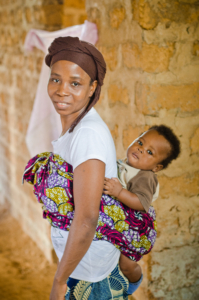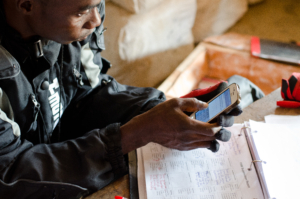Liberia’s National Community Health Program provides a powerful example of the impact community health workers can have on healthcare access and health outcomes in rural and remote communities. To perform effectively, community health workers must be equipped with skills, salaries, supervision, and supplies, operating as part of a workforce that operates at national scale and is integrated into financing, digital, and information systems. These systems include a robust monitoring framework that tracks community-based health service delivery and impact, enabling health leaders and partners to leverage data and drive program improvements.
Developing such a system is a substantial multi-year undertaking—and Liberia’s National Community Health Program has achieved this milestone toward sustainability and government ownership. Last Mile Health is proud of the work we’ve accomplished in partnership with the Ministry of Health, and we’re excited to open a new chapter: working alongside the Ministry to leverage and improve its data collection systems to monitor program impact, rather than running our own Last Mile Survey.
Background
When Last Mile Health and the Ministry of Health launched a community health worker pilot in Konobo District in 2012, we developed a survey to assess barriers to healthcare access. We refined the Last Mile Survey in subsequent years, conducting it annually to evaluate program impact. Its results demonstrated that the pilot program led to significant increases in access to care—and catalyzed the launch of the National Community Health Program in 2016. The program achieved national scale in June 2024, with community health workers deployed in every district in Liberia. With Last Mile Health’s technical support, the program has also established and strengthened routine data collection systems.
We continue to serve as the Ministry’s lead technical partner on program design and management while also leading direct implementation in a subset of counties. In these counties, we have continued to conduct the Last Mile Survey to assess the health status of the populations we serve, evaluate impact, and guide quality improvements. With the program now operating at scale, we will focus our resources towards leveraging and improving Ministry-led data collection rather than running a parallel survey: a shift that aligns with our systems strengthening approach and a key step toward the long-term objective of transitioning the National Community Health Program to full government ownership. We will thus sunset our Last Mile Survey moving forward.
Monitoring impact moving forward
We have identified indicators that will enable us to continue monitoring our direct service delivery work in Grand Bassa and Rivercess Counties, replacing the county-level indicators from the Last Mile Survey. These indicators include:
- Percentage of births that occur in a health facility
- Number of malaria treatments provided by a community health worker to children under 5
- Number of diarrhea treatments provided by a community health worker to children under 5
- Number of pneumonia treatments provided by a community health worker to children under 5
The National Community Health Program’s Community Based Information System has surfaced gaps in community-level data on immunizations, family planning, and disease surveillance. We will continue to partner with the Ministry of Health to address these gaps so that community-level data is more reliable and therefore more useful for driving impact. With strong monitoring and evaluation driving informed improvements to the program, we will work together toward a sustainable, government-owned National Community Health Program that provides professional community health workers with the systems and support they need to deliver quality primary care to patients across Liberia’s rural and remote communities.







